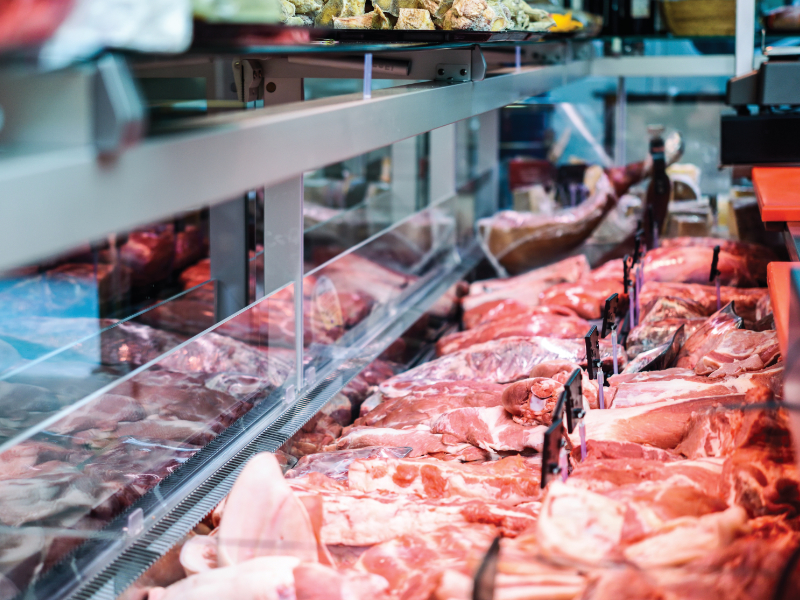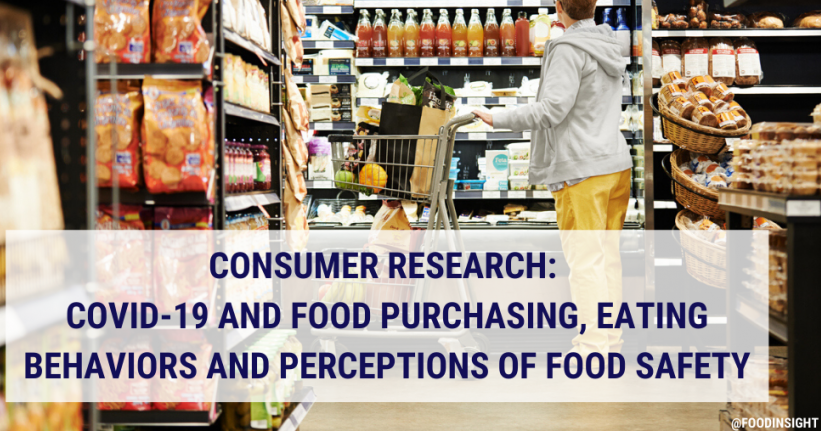According to Food Safety News, the Canadian government announced that $20 million additional funds would go to inspectors during the Coronavirus pandemic. The money, going to the CFIA, is to be used for hiring and training, as well as equipping staff so food inspections. The plan also includes training of provincial food inspectors. In the US, inspections have been scaled down to reduce the danger of infection to inspectors and workers. Only inspection related to foodborne illness outbreaks or Class I recalls would continue as usual. There has not been any association between food or food packaging and the transmission of COVID-19. However, the World Health Organization, the CDC, and many health agencies around the world advise precautionary measures for food handling and preparation. The close proximity on assembly lines in food plants from fresh produce to processed meats provides easy transmission of the virus between workers. @ https://www.foodsafetynews.com/2020/04/canada-differs-from-u-s-on-inspection-approach-during-coronavirus-pandemic/
ruth
While U.S. leaders are reassuring the public that decreased inspections aren’t a food safety risk, the federal government in Canada this week announced
ruth
The meatingplace reports that an employee at Cargill’s Fort Morgan, Colo., beef plant has died due to COVID-19 illness, with 18 others sick, and JBS USA’s Greeley, Colo., the plant has four of its employees died from respiratory disease, with 102 infected. Cargill has reduced production at Fort Morgan to one shift, and JBS has closed its Greeley facility for two weeks due to the outbreaks. In Camilla, Ga., Tyson Foods’ poultry plant a third worker succumbed to COVID-19. Tyson is encouraging team members to practice social distancing at home and on the job. Chicago’s Rose Packing confirmed that 21 of its employees are now sick with the virus. Meatpackers and processors are caught in the crosshairs of running an essential business while trying to keep their employees from getting sick, but the virus is proving to be overwhelming. Last weekend, Tyson deployed face coverings for workers at the company’s facilities nationwide and expected the supply to last up to four months. @ https://www.meatingplace.com/Industry/News/Details/91587
Meatingplace.com is the online community for North American beef, pork and poultry processors.
ruth
Smithfield Foods will temporarily close additional plants due to the Coronavirus. It is closing its plants in Cudahy, Wisconsin, and Martin City, Missouri. The Wisconsin plant near Milwaukee will be closed for two weeks, while the facility in Missouri is closed indefinitely. The Missouri plant receives raw material from the company’s Sioux Falls, South Dakota facility, which is also closed. Smithfield Foods has reported 518 infections in employees in Sioux Falls and another 126 in people connected to them. Smithfield said a small number of employees at the Wisconsin and Missouri plants have tested positive for COVID-19. The company is based in Smithfield, Virginia, and employs over 1,000 workers at the Cudahy plant. All the plant closings endanger the pork supply.@ https://www.startribune.com/smithfield-foods-closes-plants-in-wisconsin-missouri/569687722/
Smithfield Foods will temporarily close its plants in Cudahy, Wisconsin and Martin City, Missouri because of the coronavirus pandemic.
ruth
Foodinsight published a survey on the effect of the COVID-19 pandemic on food-related habits. They found that people are doing less shopping in-person and cooking more. ½ of the surveyed taker are shopping less in person, buying more in each shopping trip, and buying more shelf-stable products. Online grocery shopping increases. 16% started shopping for groceries online; 13% report increasing the frequency of online deliveries. Recommended health habits and grocery shopping. Only 63% of people report doing so after visiting the grocery store. ½ are trying to minimize touching surfaces. Women were more likely than men to be taking many precautions, and white people were more likely to do so as compared to other races/ethnicities. Those 65+ had the highest percentage of people washing their hands after shopping (73%), minimizing touching surfaces (62%) and shopping during less busy times (50%). The most concerning parts of food shopping. 42% of respondents were most worried about the health of other shoppers, while 37% were worried about the health of store employees. 28% were concerned about running out of staple items. Buying more packaged foods. 42% are buying more packaged foods than usual. Eating habits have changed. 27% said that they’ve been snacking more, and 15% say they’re eating more than usual. Most are confident in the safety of the food supply. 80% are confident that the food they are buying is safe. @ https://foodinsight.org/consumer-survey-covid-19s-impact-on-food-purchasing/




